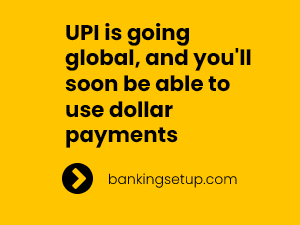[Important] These banks’ fees and policies will change from February.

As of February 20, 2022, several major banks will be subject to new regulations involving money transfers and fees. Here is a breakdown of the new features.
SBI’s new IMPS transaction fees:
SBI has announced an increase in the IMPS transfer limit for money transactions conducted at its bank locations. A new IMPS transaction slab ranging from Rs 2 lakh to Rs 5 lakh will be accessible starting in February, according to the SBI website. According to the website, there are costs of Rs 20 plus GST to use IMPS to transfer money between the amounts of Rs 2 lakh and 5 lakh.
Credit card fees are going up at ICICI Bank:
In a statement sent to its customers last month, many credit card services, including late payment costs, have been raised by ICICI Bank. “Dear Customer, Your ICICI Bank Credit Card Fee Structure Is Changing Effective February 10, 2012.” More information about MITC may be found at bit.ly/3qPW6wj,” said the letter sent to ICICI Bank credit cardholders.
Customers with ICICI Bank credit cards will be required to pay a 2.50 percent transaction fee on all cash advances, with a minimum of Rs 500, starting on February 10, 2022. The bank will now charge 2% of the amount owing, with a minimum charge of Rs 500, if a cheque is returned. The new ICICI Bank Credit Cards pricing structure will take effect on February 10, 2022. To learn more, please visit this page.
National Bank of Punjab:
Auto-debit fees at Punjab National Bank will be higher as of February 1, 2022.
According to PNB’s website, the return charges on NACH debit would rise from Rs.100/-per transaction to Rs.250/-per transaction beginning on February 1, 2022. Defaulting on a loan payment or investment owing to insufficient money in your debit account will result in higher fees.
According to the revised tariff available on the PNB website, the metro area’s non-maintenance of the quarterly average balance (QAB) limit has been raised from Rs 5,000 to Rs 10,000.
India’s largest bank, the Bank of Baroda:
Banking customers at the Bank of Baroda are receiving text messages informing them that the “CPPS System would be necessary w.e.f. 01.02.2022 for Rs 10 lakh and above issued cheques” as mandated by the RBI. Visit www.bankofbaroda.in – Bank of Baroda” for further information.
The positive pay system is a way of verifying that high-value checks have all of the necessary components. The Reserve Bank of India (RBI) has recommended banks to begin using this technology on January 1, 2021, to curb check fraud. Several banks have already switched to the new system.
In what ways does the Positive Pay System differ from the traditional method of calculating wages?
Positive pay necessitates that the person issuing the check, in this case you, verifies specific parts of it before it is processed and debited from your bank account. It is possible to accomplish this in person at a bank branch or online via your internet or mobile banking account. The beneficiary’s name, the date the check was written, the six-digit check number, and the amount are all included in this information.






